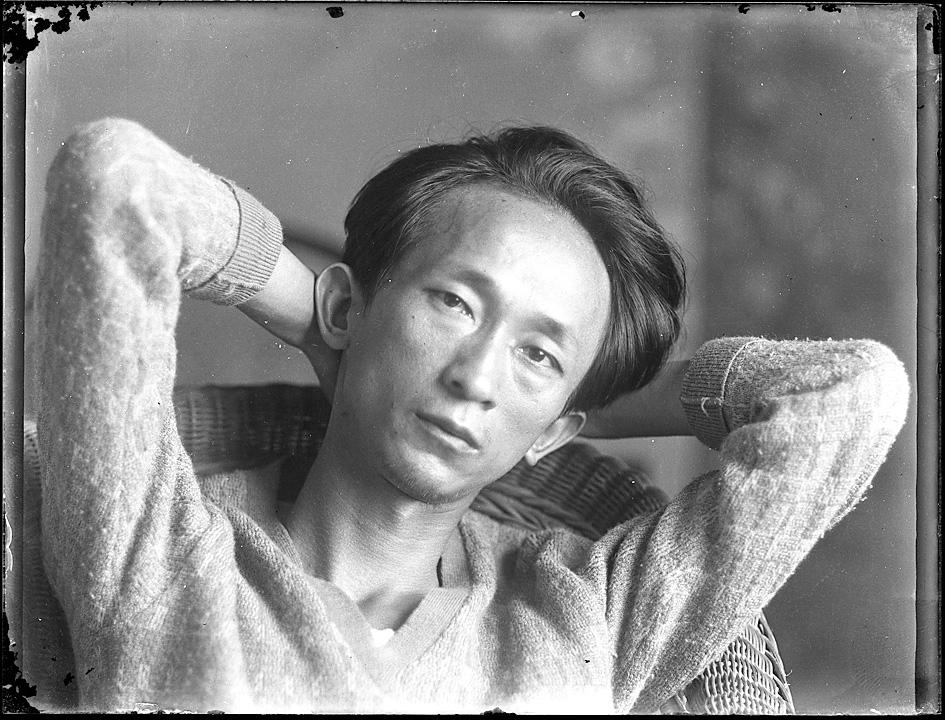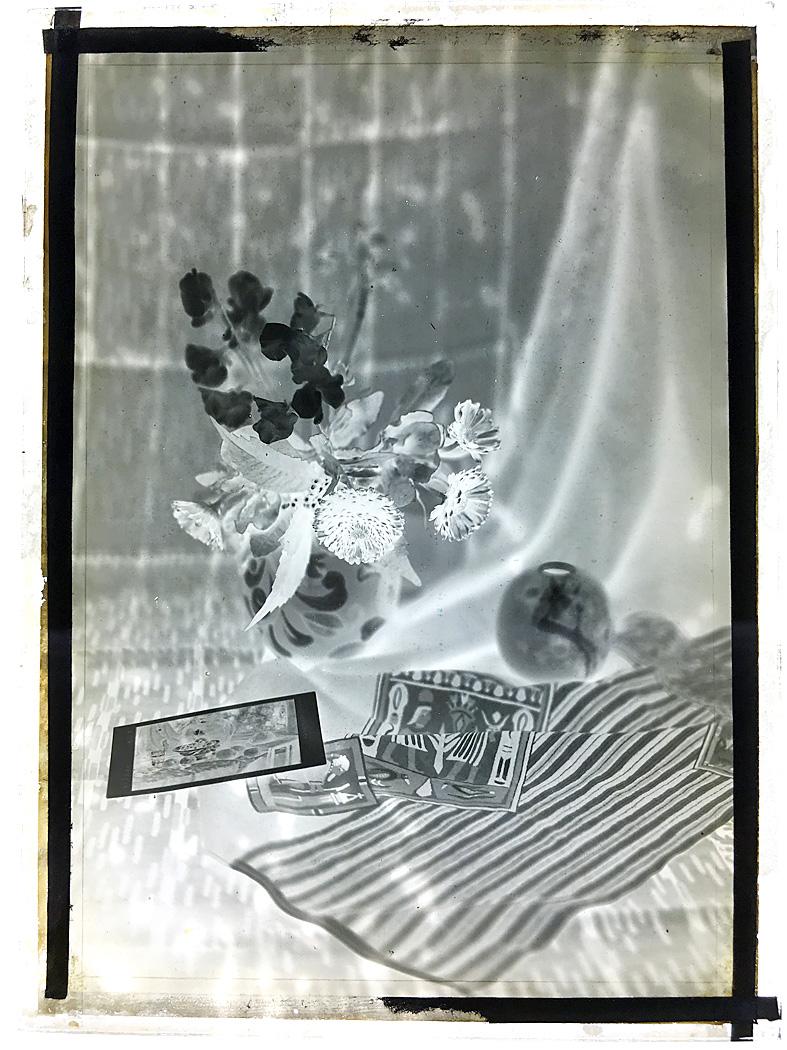To share stories about Peng Jui-lin (彭瑞麟), best known for being the first Taiwanese to hold a bachelor’s degree in photography, his granddaughter, Peng Ya-lun (彭雅倫), has established a Facebook page titled “Peng Jui-lin and our times” (彭瑞麟與我們的時代).
“I had this sudden realization that we, the living, must do something to remember our ancestors, considering the great endeavors some of them have made during their lifetime,” she said.
Peng Ya-lun was only two years old when Peng Jui-lin passed away, and she said the idea of sharing his story with the public came after the death of her mother.

Photo provided by Peng Ya-lun via CNA
Born in 1904 during the Japanese colonial period (1895-1945), Peng Jui-lin grew up in Erchongpu (二重埔), a farming village in Hsinchu County’s Jhudong Township (竹東).
After both his parents died when he was a teenager, Peng Jui-lin attended Taihoku Normal School, now National Taipei University of Education, in hopes of living a financially stable life.
During his university years, he learned watercolor painting from Kinichiro Ishikawa, a Japanese painter who promoted modern Western art education while holding several teaching positions in Taiwan from the 1910s trough the 1930s.

Photo provided by Peng Ya-lun via CNA
Having lived in Europe, Ishikawa took special interest in photography, which at the time was still a new and emerging field in Japan, and he convinced Peng Jui-lin to go abroad and study photography — instead of painting, Peng Ya-lun said.
Following his teacher’s advice, Peng Jui-lin went to Japan in 1928 to study at a Tokyo-based art school specializing in photography.
Being from a what was then a Japanese colony and being five years older than his classmates, Peng Jui-lin went to great lengths to prove himself worthy to his teachers — and to master photography, Peng Ya-lun said, recounting her father’s memories, which were retold by her mother.
In his second year, Peng Jui-lin used a three-color carbon printing technique to develop his photographs and one of them, a still life with flowers titled Silent objects (靜物), was later displayed in an exhibition by the Tokyo Photographic Research Society — an achievement that impressed teachers and classmates, she said.
Peng Jui-lin graduated top of his class, Peng Ya-lun said.
His commitment and diligence throughout his college years also impressed the school’s principal, who decided to personally teach him a new technique for developing photos, using collodion, gold power and a light-sensitive colloid, she said.
Peng Jui-lin used the technique to create a print titled Toroko Women (太魯閣之女), that was shown in an exhibition in 1938, Peng Ya-lun added.
Toroko Women is a special piece of Taiwanese photography history, as it is the only work that still exists in the nation to make use of the technique, which is believed to have become a lost craft, the National Taiwan Museum of Fine Arts said.
Peng Jui-lin continued to refine his craft, while teaching aspiring photographers in Taiwan. His talent drew significant attention, even from the Japanese royal family, who offered him a position in the Japanese Imperial Household.
Despite great prospects of success in Japan, after a brief stint in Tokyo, he returned to Taiwan, as he had promised this to one of his former students, Lu Yu-ye (呂玉葉), who later became his wife.
One day, before Peng Jui-lin followed the calls of the emperor, a young female student had stopped coming to school, because her parents did not want her to continue education. Peng Jui-lin urged her parents to change their mind, and after long discussions, they did so under the condition that he would have to take care of their daughter for the rest of his life.
After his return to Taiwan, Peng Jui-lin opened the Apollo photo studio in Taipei.
It was a difficult time for him, because many photographers considered his practice of sharing the secrets of his photography “a breach of the business rules,” with some even throwing paint at his studio, she said.
The building, in which he ran his business, was later torn down after World War II, Peng Ya-lun said, adding that at the time, her grandfather had to juggle multiple jobs, including as a teacher and a Chinese medicine doctor.
Peng Jui-lin was arrested by the Chinese Nationalist Party (KMT) on trumped-up charges in 1946, while one of his closest friends, Huang A-tung (黃阿統), was executed by KMT troops, she said.
Devastated by his friend’s death, Peng Jui-lin commemorated Huang with a self-created photo book, the first of many, Peng Ya-lun said.
Aside from making individual albums for each of his seven children, he also reshot, reprinted and magnified an old group photo that featured his late father, as he found out that no other photo of him existed, she added.
“My grandfather had lots of passion for life and adventures, and he often traveled around Taiwan with a set of photo-editing tools, providing all kinds of assistance to photo studios across the nation,” Peng Ya-lun said. “I feel that my role is the one of a gatekeeper to a database that should be open to everyone.”

Taiwan would welcome the return of Honduras as a diplomatic ally if its next president decides to make such a move, Minister of Foreign Affairs Lin Chia-lung (林佳龍) said yesterday. “Of course, we would welcome Honduras if they want to restore diplomatic ties with Taiwan after their elections,” Lin said at a meeting of the legislature’s Foreign Affairs and National Defense Committee, when asked to comment on statements made by two of the three Honduran presidential candidates during the presidential campaign in the Central American country. Taiwan is paying close attention to the region as a whole in the wake of a

Chinese Nationalist Party (KMT) Chairman Eric Chu (朱立倫), spokeswoman Yang Chih-yu (楊智伃) and Legislator Hsieh Lung-chieh (謝龍介) would be summoned by police for questioning for leading an illegal assembly on Thursday evening last week, Minister of the Interior Liu Shyh-fang (劉世芳) said today. The three KMT officials led an assembly outside the Taipei City Prosecutors’ Office, a restricted area where public assembly is not allowed, protesting the questioning of several KMT staff and searches of KMT headquarters and offices in a recall petition forgery case. Chu, Yang and Hsieh are all suspected of contravening the Assembly and Parade Act (集會遊行法) by holding

PRAISE: Japanese visitor Takashi Kubota said the Taiwanese temple architecture images showcased in the AI Art Gallery were the most impressive displays he saw Taiwan does not have an official pavilion at the World Expo in Osaka, Japan, because of its diplomatic predicament, but the government-backed Tech World pavilion is drawing interest with its unique recreations of works by Taiwanese artists. The pavilion features an artificial intelligence (AI)-based art gallery showcasing works of famous Taiwanese artists from the Japanese colonial period using innovative technologies. Among its main simulated displays are Eastern gouache paintings by Chen Chin (陳進), Lin Yu-shan (林玉山) and Kuo Hsueh-hu (郭雪湖), who were the three young Taiwanese painters selected for the East Asian Painting exhibition in 1927. Gouache is a water-based

President William Lai (賴清德) has appointed former vice president Chen Chien-jen (陳建仁) to attend the late Pope Francis’ funeral at the Vatican City on Saturday on his behalf, the Ministry of Foreign Affairs said today. The Holy See announced Francis’ funeral would take place on Saturday at 10am in St Peter’s Square. The ministry expressed condolences over Francis’ passing and said that Chen would represent Taiwan at the funeral and offer condolences in person. Taiwan and the Vatican have a long-standing and close diplomatic relationship, the ministry said. Both sides agreed to have Chen represent Taiwan at the funeral, given his Catholic identity and